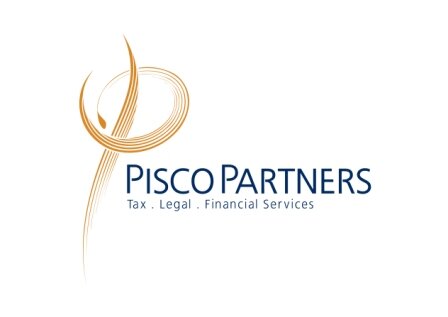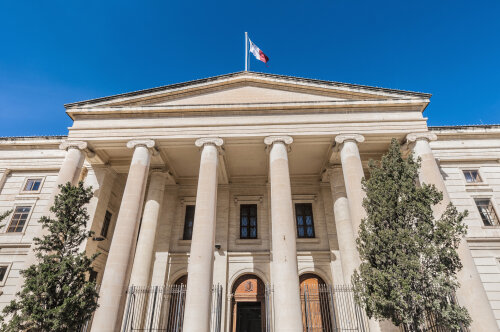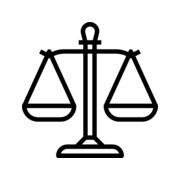Best Agriculture Lawyers in Malta
Share your needs with us, get contacted by law firms.
Free. Takes 2 min.
Or refine your search by selecting a city:
List of the best lawyers in Malta
About Agriculture Law in Malta
Agriculture in Malta is an important sector of the economy, contributing to food security and rural development. It is governed by a set of laws and regulations to ensure sustainable practices and fair treatment of farmers.
Why You May Need a Lawyer
You may require legal assistance in Agriculture in Malta for various reasons, such as disputes over land rights, contracts with suppliers or buyers, environmental regulations compliance, or government subsidies applications.
Local Laws Overview
Key aspects of local laws relevant to Agriculture in Malta include regulations on land tenure, crop production, livestock management, water usage, environmental protection, and food safety standards. It is important to be aware of these laws to avoid legal issues.
Frequently Asked Questions
Q: Can foreign individuals or companies own agricultural land in Malta?
A: Yes, non-Maltese entities can own agricultural land in Malta, but certain restrictions may apply.
Q: What are the requirements to qualify for agricultural subsidies in Malta?
A: To qualify for subsidies, farmers must meet specific criteria related to land size, crop diversity, environmental practices, and animal welfare standards.
Q: Are there regulations on the use of pesticides and fertilizers in Malta?
A: Yes, there are strict regulations on the use of pesticides and fertilizers to protect the environment, public health, and food safety.
Q: Can farmers in Malta sell their products directly to consumers?
A: Yes, farmers can sell their products directly to consumers through farmers' markets, farm shops, or online platforms.
Q: Is there a legal framework in place to address animal welfare issues in Malta?
A: Yes, there are laws that protect the welfare of animals in agriculture, including regulations on housing, feeding, and transportation of livestock.
Q: What are the penalties for violating agricultural laws in Malta?
A: Penalties for violating agricultural laws in Malta can include fines, confiscation of assets, suspension of subsidies, or even imprisonment in severe cases.
Q: Are there any incentives for farmers to adopt sustainable farming practices in Malta?
A: Yes, there are incentives such as grants, training programs, and certification schemes to encourage farmers to adopt sustainable practices.
Q: How can I resolve a dispute with a supplier or buyer in the agricultural sector?
A: You can seek legal assistance to negotiate a settlement, resolve the dispute through mediation or arbitration, or take the matter to court if necessary.
Q: Are there any restrictions on the use of agricultural land for non-agricultural purposes in Malta?
A: Yes, there are regulations that restrict the conversion of agricultural land for non-agricultural purposes to preserve farmland and rural landscapes.
Q: How can I stay updated on changes in agricultural laws and regulations in Malta?
A: You can stay informed by following updates from the Ministry for Agriculture, Fisheries, Climate Change, and make use of resources provided by agricultural organizations and legal professionals.
Additional Resources
For legal advice and assistance in Agriculture in Malta, you can contact the Chamber of Advocates, the Malta Competition and Consumer Affairs Authority (MCCAA), or the Department of Agriculture.
Next Steps
If you require legal assistance in Agriculture in Malta, it is recommended to consult with a qualified lawyer who specializes in agricultural law. They can provide guidance on your rights, obligations, and options for resolving any legal issues you may encounter.
Lawzana helps you find the best lawyers and law firms in Malta through a curated and pre-screened list of qualified legal professionals. Our platform offers rankings and detailed profiles of attorneys and law firms, allowing you to compare based on practice areas, including Agriculture, experience, and client feedback.
Each profile includes a description of the firm's areas of practice, client reviews, team members and partners, year of establishment, spoken languages, office locations, contact information, social media presence, and any published articles or resources. Most firms on our platform speak English and are experienced in both local and international legal matters.
Get a quote from top-rated law firms in Malta — quickly, securely, and without unnecessary hassle.
Disclaimer:
The information provided on this page is for general informational purposes only and does not constitute legal advice. While we strive to ensure the accuracy and relevance of the content, legal information may change over time, and interpretations of the law can vary. You should always consult with a qualified legal professional for advice specific to your situation.
We disclaim all liability for actions taken or not taken based on the content of this page. If you believe any information is incorrect or outdated, please contact us, and we will review and update it where appropriate.
Browse agriculture law firms by city in Malta
Refine your search by selecting a city.















